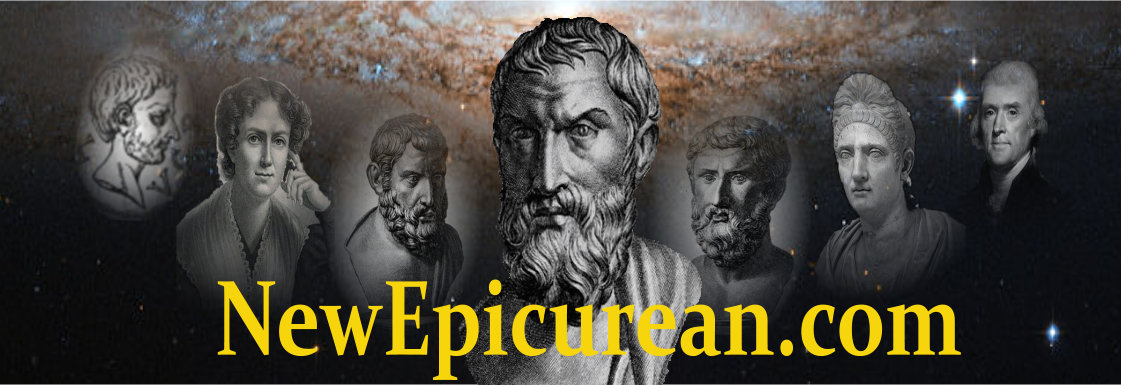The Wise Man
Epicurus’ Description of the Wise Man
The following excerpt from Diogenes Laertius’ Biography of Epicurus is based on the translation of Cyril Bailey:
- Injuries are done among men either because of hatred, envy, or contempt, all which the wise man overcomes by reason.
- When once a man has attained wisdom he no longer has any contrary tendency to it, nor does he willingly pretend that he has. He will be more deeply moved by feelings than others, but this will not prove to be an obstacle to wisdom.
- A man cannot become wise in every kind of physical constitution, or in every nation.
- Even if the wise man were to be put to torture, he would still be happy.
- The wise man shows gratitude, and constantly speaks well of his friends whether they are present or absent.
- The wise man will groan and howl when he is put to the torture.
- The wise man will not have intercourse with any woman whom the laws forbid, as Diogenes says, in his epitome of the Ethical Maxims of Epicurus.
- The wise man will not punish his servants, but will rather pity them and forgive any that are deserving.
- The Epicureans do not think that the wise man will fall in love, or be anxious about his burial, for they hold that love is not a passion inspired by the gods, as Diogenes says in his twelfth book.
- The Epicureans assert that the wise man will not make elegant speeches.
- Sexual intercourse, the Epicureans say, has never done a man good, and he is lucky if it has not harmed him.
- The wise man will marry and have children, as Epicurus says in treatises On Problems and On Nature, but only in accord with the circumstances of his life.
- The wise man will never indulge in drunkenness, says Epicurus, in his Banquet,
- The wise man will not entangle himself in affairs of state, as Epicurus says in his first book on Lives.
- The wise man will not become a tyrant.
- The wise man will not live like a Cynic, as he says in his second book on Lives, nor become a beggar.
- Even if the wise man should lose his eyesight, he will not end his whole life, as he says in the same book.
- The wise man will be subject to grief, as Diogenes says, in the fifth book of his Select Opinions.
- The wise man will not object to go to the courts of law.
- The wise man will leave books and memorials of himself behind him, but he will not be fond of frequenting assemblies.
- The wise man will take care of his property, and provide for the future.
- The wise man will be fond of the countryside.
- The wise man will resist fortune.
- The wise man will not mourn the death of his friends.
- The wise man will show a regard for his reputation to such an extent as to avoid being despised.
- The wise man will find more pleasure than other men in public spectacles.
- The wise man will erect statues of others, but he will be indifferent as to raising one for himself.
- The wise man is the only person who can converse correctly about music and poetry, but he will not himself compose poems.
- One wise man is not wiser than another.
- The wise man will also, if he is in need, earn money, but only by his wisdom.
- The wise man will appease an absolute ruler when occasion requires.
- The wise man will rejoice at another’s misfortune, but only for his correction.
- The wise man gather together a school, but never so as to become a leader of crowds.
- The wise man will give lectures in public, but it will be against his inclination and never unless asked.
- The wise man will teach things that are definite, rather than doubtful musings.
- The wise man be the same whether asleep or awake.
- The wise man will be willing even to die for a friend.
- The wise man holds that all faults are not of equal gravity.
- The wise man holds that health is a blessing to some, but a matter of indifference to others.
- The wise man holds that courage is a quality that does not come by nature, but by a consideration of what is to one’s advantage.
- The wise man holds that friendship is first brought about due to practical need, just as we sow the earth for crops, but it is formed and maintained by means of a community of life among those who find mutual pleasure in it.
- The wise man holds that there are two types of happiness – complete happiness, such as belongs to a god, which admits of no increase, and lesser happiness, which can be increased or decreased.

